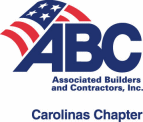The Owner shall not be liable to the Contractor and/or any Subcontractor for claims or damages of any nature caused by or arising out of delays. The sole remedy against the Owner for delays shall be the allowance of additional time for completion of the Work, the amount of which shall be subject to the claims procedure set forth in the General Conditions.~ Werner Sabo, Legal Guide to AIA Documents, 2008 (5th ed.)
Such clauses aren’t always enforceable. In fact, under North Carolina statutory law, “no damages for delay” provisions are unenforceable in prime contracts between public owners and general contractors. See N.C. Gen. Stat. § 143-134.3. But in all other cases where such clauses are enforceable, do they provide an impenetrable defense against increased costs arising from project delay? Not necessarily.
In a thoughtful decision ruminating on how construction contracts serve to allocate various project risks, the N.C. Court of Appeals (“COA”) recently held in Southern Seeding Service, Inc. v. W.C. English, Inc. that a “no damages for delay” clause set forth in a sub-subcontract did not defeat an equitable adjustment clause set forth in the same agreement.
The sub-subcontract in question contained the following “no damages for delay” clause:
Should [sub-subcontractor], without fault or neglect on its own part, be delayed in the commencement, prosecution, or completion of the Work by the fault or neglect of [subcontractor], [sub-subcontractor] shall be entitled to a reasonable extension of time, only. . . . In no event shall [sub-subcontractor] be entitled to compensation or damages for any delay in the commencement, prosecution, or completion of the Work except to the extent that [subcontractor] shall receive such compensation or damages from Owner or other third party.
The same sub-subcontract also contained the following provision:
Unit prices herein quoted are based upon the assumption that the contract will be completed within time as specified in the specifications at the time of bidding. Should our work be delayed beyond said time without fault on our part, unit prices herein quoted shall be equitably adjusted to compensate us for increased cost.
The source of the delay that impacted the sub-sub’s seeding and mulching work was the subcontractor directly above the sub-sub in the contractual chain, a subcontractor who argued that since it was not entitled to any additional compensation for the delay it had caused, its sub-subcontractor wasn’t entitled to any delay damages, either — including the sub-subcontractor’s increased material and labor costs.
The trial court agreed, but the Court of Appeals reversed. It ruled that the “no damages for delay clause” and the equitable adjustment clause “allocate two distinct risks[.]” Specifically, the COA found that the “no damages for delay” clause allocated risk with respect to responsibility for extended general conditions expenses (i.e., Division 1 costs) arising from delay, while the equitable adjustment clause allocated the risk of increased material and labor costs arising from unforeseen circumstances. Construing the contract as a whole, the COA ruled that while “delay damages” were barred, the “no damages for delay” clause did not bar recovery for “market drive cost increases associated with material and labor costs” incurred as a result of delay beyond the sub-sub’s control.
If you subscribe to the school of thought that believes the COA attempts to do “rough justice” based on the facts of the case before it, you might point to the Southern Seeding decision as “Exhibit A” in support of that theory. On the one hand, the sub-sub did agree to a contractual risk allocation that waived entitlement to “delay damages,” and courts should not endeavor to re-write the contracts of sophisticated business entities. On the other hand, the delays that resulted in increased material and labor costs for the sub-sub were, at least based on my reading of the facts, completely outside of the sub-sub’s control. Would it have been equitable to force the sub-sub to eat those increased costs, particularly in light of the equitable adjustment clause contained in the sub-subcontract? This humble blogger suggests the answer to that question is an unequivocal “no,” and that the COA’s interpretation of the agreement represents a fair outcome under all of the facts and circumstances.
A couple of practical pointers arising from the Southern Seeding decision:
- If you have an opportunity to suggest revisions to a draft contract containing a “no damages for delay” clause, the safest course of action to preserve all rights is to eliminate the clause through negotiation.
- Alternatively, and if the party above is unwilling to eliminate the clause, be sure to include an equitable adjustment clause covering potential price increases in the contract. Any claim for extended general conditions may be waived, but at least claims for price escalation will be preserved.







Pingback: Did the Court of Appeals Unwittingly Increase the Risk of Surety Companies Issuing Payment Bonds in North Carolina? | N.C. Construction Law, Policy & News
Pingback: Everything’s Bigger in Texas, Including the Construction Litigation (Part 2 of 3) | N.C. Construction Law, Policy & News